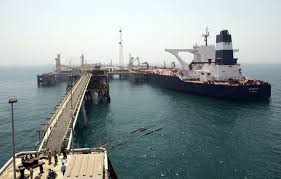
Nature of work
A port engineer works to design, install and maintain machinery, equipment and power supply systems of marine vessels. The main responsibility is to keep shipping fleets in optimal working condition, which requires attention to detail and extensive knowledge of ships and other ocean going vessels. Responsibilities also include parts inventory and ordering, planning and implementing safety standards, maintaining maintenance schedules and ensuring time and effective cost.The main tasks that a port engineer does are the following :
Preparing plans, estimating and designing construction schedules and contracting specifications including any special provisions.
Preparing technical reports for use by engineering, management, or sales personnel.
Investigating and observing tests on machinery and equipment for compliance with standards.
Determining conditions under which tests are to be conducted, as well as sequences and phases of test operations.
Evaluating operation of marine equipment during acceptance testing and shakedown cruises.
Maintaining contact with, and formulating reports for, contractors and clients to ensure completion of work at minimum cost.
Environment of work
Working as a port engineer may often require long hours, travel and last minute changes to work schedules, reflecting the inherent nature of the job. Other expectations of the job include cramped work environments, both indoors and outdoors as well as risk of physical injury and sometimes the deal with heights.A Port engineer will spend the majority of his/ her time working in an office environment, co-ordinates resources for engineering in the port. There may be some time spent on the quayside inspecting equipment and assessing the efficiency of operations.
Professional life
A Port engineer is well placed to become general manager/port director due to his/ her high level skills and qualifications. There are also opportunities to specialize in other sectors.A Port engineer can expect to earn somehow in the region of 50,000 to 55,000 SYP, depending on experience and the size and type of organization.
Getting the job
Because of the skilled nature of engineering work, a port engineer will normally be expected to hold a degree level qualification in engineering or a suitably related subject. Experience in the industry or with the types of equipment used would be desirable. Many port engineers will have previously been workshop managers and engineering/mechanical supervisors.A port engineer usually has a bachelor’s degree in marine engineering.
Skills
Candidates will need to show evidence of the following:Critical Thinking - using logic and reasoning to identify the strengths and weaknesses of alternative solutions, conclusions or approaches to problems.
Science - using scientific rules and methods to solve problems.
Judgment and Decision Making - Considering the relative costs and benefits of potential actions to choose the most appropriate one.
Communication skills- having good writing and oral skills.
Complex Problem Solving - Identifying complex problems and reviewing related information to develop and evaluate options and implement solutions.
Sources and references
If a candidate needs any further information on what is included in this file, he/ she can visit the following websites:www.smpe.org, Society of Marine Port Engineers
The Order of syrian engineers, Damascus, Tel: 6627256
www.arab-eng.org, Arab Engineers Forum.
www.portengineeringmanagement.com , Port Engineering Management
Arab Standard Classification of Occupations, 2008, Ed. Arab Labor Organization.
